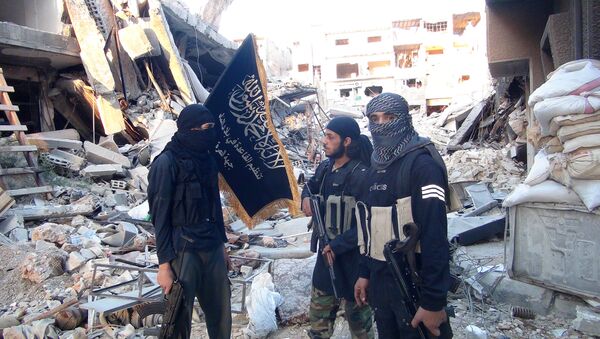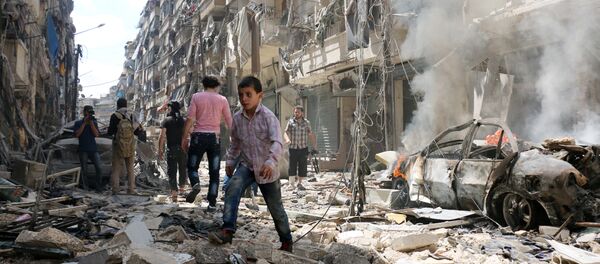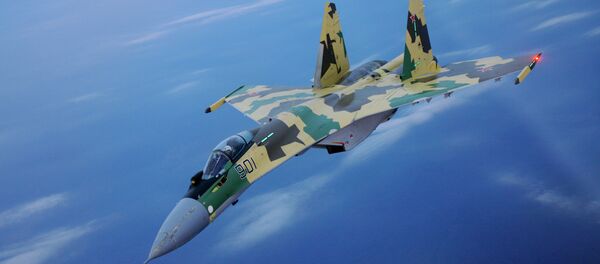The merging of the terror groups follows intense fighting between extremists with US-backed Ahrar al-Sham, joined by Al-Nusra Front in the fight, waging a series of bloody offensives against the Daesh affiliate leading the group to give in and pursue the path of least resistance by joining arms with the al-Qaeda-linked terrorists against the Syrian government.
"In light of the critical situation whereby recent implication has given the opportunity for the Assad regime to recapture all of the recently liberated areas in Hama, and to stop the bloodbath among (Muslim) jihadists and overcome the infighting between us (Jund al-Aqsa) and Ahrar al-Sham – which only benefits the [Syrian] regime and its allies – we, hereby, pay allegiance to JFS (Al-Nusra Front), and together will carry on the holy jihad against the infidels," the statement read.
Gissur Simonarson (@GissiSim) October 9, 2016
The statement was written by hand and signed by Emirs from both Jund al-Aqsa and Al-Nusra Front cementing the relationship that represents Washington’s worst nightmare as terrorist groups in Syria on both sides of the line are joining forces after the so-called moderate rebels had already joined up with Al-Nusra terrorists under the Army of Conquest banner to repel the siege of Aleppo.
Increasingly the lines between rebel groups and terrorist organizations have faded with the hardline Salafist groups amassing their collective forces to combat the Syrian Army and Russia Aerospace Forces (Air Force) with US regional partners providing the terrorists with powerful but inaccurate Grad Missiles and discussion of Saudi Arabia equipping the groups with anti-aircraft MANPADS.
State Department Spokesman John Kirby caused an uproar a week ago when he suggested that Russia’s refusal to halt airstrikes against the terrorists in Syria will place Moscow in the position of “continuing to send troops home in body bags, and will continue to lose resources, perhaps even aircraft” hinting towards supplying the rebels with MANPADS for use against Russia, but with the lines between Daesh (ISIS), al-Qaeda, and the "moderate" rebels blurred even further one is simply left wondering.
Despite the growing conflict between the United States’ espoused position of fighting terrorists in Syria, as opposed to a narrow focus of toppling the Assad government, talks between the US and Russia continue to go sideways after the ceasefire brokered by Moscow and Washington was shattered by a Western airstrike on the Syrian Army in Deir Ez-Zor and after the moderate rebels openly and blatantly refused to put down their weapons with Russia recording over 300 violations in the first days.
What comes next in the Syrian crisis and what the ramifications for the international community will be remain uncertain, but one need only look at Afghanistan starting in the 1980s to have a decent hint.




